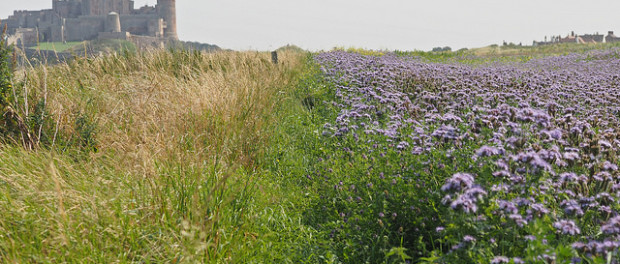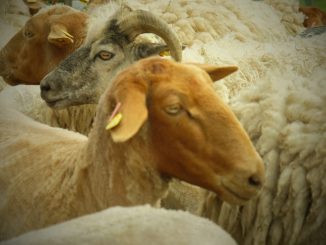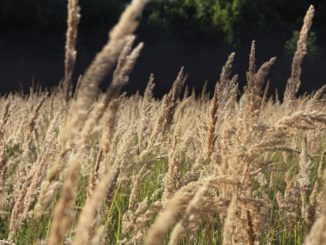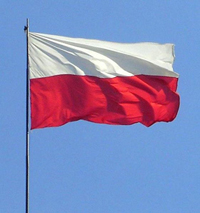Agriculture Commissioner Phil Hogan appears to be sticking to his guns on the banning of pesticides in Ecological Focus Areas, despite the opposition of 18 EU Member States, as reported on ARC2020 recently. So what’s next?

“The principle of a ban on pesticides in ecological focus areas remains and will continue to remain”. So said Commissioner Phil Hogan at the Committee on Agriculture and Rural Development meeting on 12th October (1 hr 55mins 20 seconds into the video).
The Commission will again examine these changes, called the omnibus regulation affecting all four CAP regulations. The changes will be implemented via a delegated act. This allows for the European Parliament will examine them in the coming weeks, for a period of about two months.
While Commissioner Hogan’s track record of greening and the environment is not especially strong (see here, here and here; and his earlier environmental positions here), he thus far retained the Commission position of a ban on pesticides in EFAs as part of the simplification of CAP greening.
Addressing the Agriculture Food and the Marine Joint Committee in the Irish Parliament on the 20th October, he also acknowledged the opposition to this ban, while doubling down on the importance of the environmental dimension to CAP.
“I am also in the course of proposing a package of measures in relation to the simplification of greening and I welcome the support shown by Member States for the majority of the measures. However, I am conscious that opposition has been expressed in respect of three of the proposals contained in the package, including a proposed ban on the use of pesticides on EFA. While I have offered a number of compromises, which I believe address many of the concerns expressed, it is important to restate that that the CAP is an economic, environmental and social policy.The CAP has a strong environmental dimension and that is as it should be. The simple facts are that the environmental dimension is here to stay and on my watch we will not lower our level of environmental ambition. That said, my commitment to simplification remains and I look forward to having further proposals aimed at making the lives of our farmers easier.”
In the meantime, NGOs are focusing their efforts on MEPs from the 18 Member States (CZ, DK, EE, IE, EL, FR, HR, LV, LT, LU, HU, PT, RO, SI, SE, FI, UK, PL) that oppose the ban.
More
All ARC2020 articles on CAP greening, simplification and pesticides.
Below is the full text of a letter signed by a cross party group of 33 MEPs regarding pesticides in EFAs. (This makes references to ARC2020 and our recent article and 2014 campaign on this topic)
BEGINS
European Parliament, 10 October 2016
Dear Commissioner, dear Ministers,
We, the undersigned, welcome the proposal outlined by Mr Hogan to the July AGRI Council (1) to amend the delegated act (2) on Greening that would prevent the use of pesticides on Ecological Focus Area (EFAs). This is part of the “better regulation” simplification package.
The aim of any REFIT or simplification review is rightly to ensure legislation is fit for purpose. The intention of the EFAs, listed under “practices beneficial for the climate and the environment”, was “to safeguard and improve biodiversity on farms (3), boosting natural processes and so strengthening the ecosystem functions that are essential for the long term productivity and intrinsic fertility of our food production systems.
These natural processes, many of which are alarmingly weak across most conventional systems, include pollination, topsoil formation, nutrient cycling and carbon sequestration, regulation of the water cycle that reduces flood and drought risk, as well as controlling and regulating pest populations via predation.
These processes all depend upon biodiversity. The greater the abundance and variety of species, the stronger and more resilient are these emergent ecosystem functions, provided “for free” for farmers.
Therefore it stands to reason that actions impeding the development of that diversity and delivery of those processes ought not to be permitted on the EFAs. Pesticides can have non-target effects that impact upon a wide range of bacteria, fungi and invertebrates. So it makes sense that such collateral damage should be avoided if the EFA measure is to be effective and fit for purpose.
Furthermore a recent EP resolution on the EU’s Biodiversity Strategy stressed “that EFAs should in principle be areas for the protection and promotion of agro‑ecological processes such as pollination and soil conservation” (4) Likewise, a recent opinion by the European Economic and Social Committee noted that “the fact that the use of pesticides is to some extent permitted in ecological focus areas is diametrically opposed to the intention of greening agricultural policy: pesticides do not help to increase biodiversity but rather limit it.”(5) In the process of CAP reform, many MEPs joined with NGOs (6) to voice their concerns about the loophole and lack of coherence that allowed pesticide use on EFAs. Therefore we welcome the move by the Commission to make the legislation fit for purpose by not allowing pesticide application on EFAs, making them work for farmers, society and nature.
As for concerns about provisions for leguminous and protein crops, we agree that there is a major gap in Europe since the Blair House agreement limited leguminous production and the CAP reform of 2003 discontinued the protein crop scheme. The recent hearing in the European Parliament’s Agriculture and Rural Development committee vividly illustrated this (7), with agreement of all MEPs present that the CAP needs a scheme for home-grown plant proteins. A plant protein plan was indeed promised by the Commission at the end of the CAP reform negotiations, taking inspiration from the successful French scheme which boosted production of leguminous crops. Growing more leguminous crops in rotation is a win-win-win situation for farmers, society and the environment, as it also stimulates rural economies thanks to localised feed production, and input autonomy from the imported soya which drives destruction of tropical forests and savannahs in South America. Less dependence on imported soya would also relieve farmers squeezed by production costs.
Looking forward, we urge you to take the time to develop an ambitious EU plant protein scheme, which would include leguminous crops as part of crop rotations.
Resilient and robust agro-ecosystems are essential to withstand climate change and other environmental impacts, with benefits to be seen not only on the farms in question but across whole landscapes, with improvements to entire rural communities and indeed the whole of society.
Yours sincerely,
Pavel POC; Paul BRANNEN; Sirpa PIETIKAINEN; Jytte GUTELAND; José BOVÉ; Martin HÄUSLING; Bart STAES; Molly SCOTT CATO; Maria HEUBUCH; Rebecca HARMS; Jakop DALUNDE; Michèle RIVASI; Bronis ROPE; Bas EICKHOUT; Jean LAMBERT; Pascal DURAND; Claude TURMES; Keith TAYLOR; Estefania TORRES MARTINEZ; Lyn BOYLEN; Merja KYLLONEN; Anja HAZEKAMP; Stefan ECK; Maria Dolores Lola; SANCHEZ CALDENTEY; Marisa MATIAS; Maria Lidia SENRA RODRIGUEZ; Maria NOICHL; Eleonora FORENZA; Tania GONZALEZ PENA; Matt CARTHY; Liadh NI RIADA; Martina ANDERSON; Dimitrios PAPADIMOULIS.
1 Discussion in Agriculture & Fisheries Council in Brussels 18th July 2016, press background www.consilium.europa.eu/en/meetings/agrifish/2016/07/background-agri_en_pdf/ and preparatory documents SWD(2016) 218: http://data.consilium.europa.eu/doc/document/ST-11025-2016-INIT/en/pdf and http://data.consilium.europa.eu/doc/document/ST-10475-2016-REV-1/en/pdf
Commission staff working document – Review of greening after one year http://ec.europa.eu/agriculture/direct-support/pdf/2016-staff-working-document-greening_en.pdf based on the roadmap http://ec.europa.eu/smart-regulation/roadmaps/docs/2016_agri_016-017_eco_focus_area_en.pdf
2 Commission delegated regulation (EU) No 639/2014 of 11 March 2014 supplementing Regulation (EU) No 1307/2013 of the European Parliament and of the Council establishing rules for direct payments to farmers under support schemes within the framework of the common agricultural policy and amending Annex X to that Regulation [2014] OJ L 181/1, http://eur-lex.europa.eu/legal-content/EN/TXT/PDF/?uri=CELEX:32014R0639&from=en
3 Recital 37, 44 and art.46(1), Regulation (EU) 1307/2013 of the European Parliament and of the Council of 17 December 2013 establishing rules for direct payments to farmers under support schemes within CAP, http://eur-lex.europa.eu/legal-content/EN/TXT/PDF/?uri=CELEX:32013R1307&from=en
4 Article 40, European Parliament resolution of 2 February 2016 on the mid-term review of the EU’s Biodiversity Strategy, http://www.europarl.europa.eu/sides/getDoc.do?type=TA&language=EN&reference=P8-TA-2016-0034
5 Article 4.7.4, Opinion by the European Economic and Social Committee of 21 September 2016 on the biodiversity policy of the EU, http://www.eesc.europa.eu/?i=portal.en.nat-opinions.38740
6 https://www.arc2020.eu/2014/01/pressure-builds-to-save-ecological-focus-areas-from-pesticides/
7 EP Committee of Hearing on “Improving European Plant Protein Supplies” 21 June 2016,
http://www.europarl.europa.eu/committees/en/agri/events-hearings.html?id=20160621CHE00151





